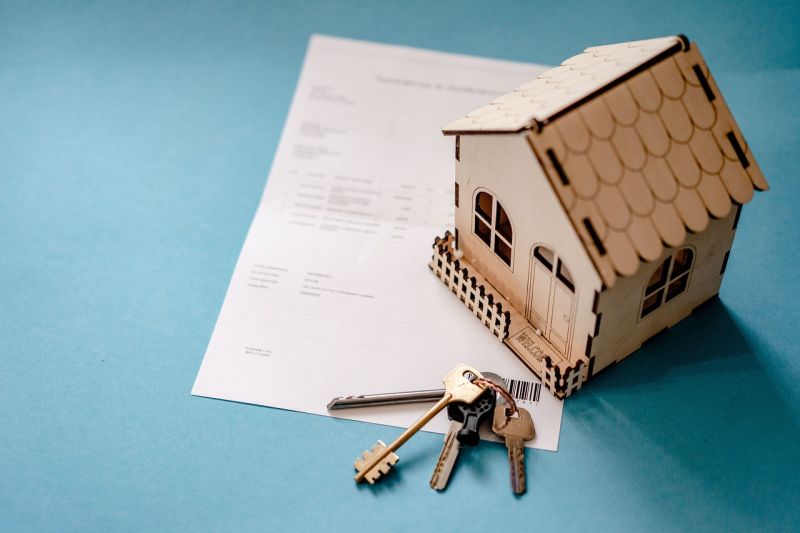12
May 2024
Are 100% mortgages as good as they sound? Here’s everything you need to know
It can be tough to raise a deposit to get on the property ladder, so for those struggling, a 100% mortgage sounds like the answer. But are they as good as they sound?
Here is everything you need to consider when thinking about buying a home with a 100% mortgage:
What is a 100% mortgage and how does it work?
Most mortgages usually require a deposit of at least 5% or 10% of the price of the home, but a 100% mortgage is when you borrow the entire value of the home you want to buy. This means you won’t need to pay any money upfront to buy a home. If you pay a deposit, the remaining percentage of the house price is your Loan to Value (LTV), so for a 5% deposit, your LTV would be 95%. 100% mortgages are typically aimed at first-time buyers to help them get on the property ladder, however, they are available to other types of buyers and renters too.
They were a lot more common before the financial crisis in 2009, but since then, lenders have been unwilling to take on such a high level of risk that comes with this type of mortgage. Lenders started paying more attention to entire financial situations, rather than relying solely on what you earn each month. This meant obtaining a mortgage and getting on the property ladder was much harder, particularly for first-time buyers.
But now, 100% mortgages are back on offer without the need for a guarantor. However, there aren’t as many on offer, and you may be subject to more rigorous checks on your entire financial situation. Your lender will look at both your income and spending before you’re accepted for a mortgage, and you will generally need a history or paying your bills and rent on time.
Other zero-deposit mortgages from some lenders can come in the form of a guarantor mortgage or a family deposit mortgage. A guarantor is someone who would be responsible for paying your mortgage if you were to miss any repayments. Remember their credit file will be checked and affordability checks will be carried out for a guarantor to ensure they can cover the mortgage payments on top of other payments or debts. While a family deposit mortgage is where someone related to you keeps a percentage of the property’s price in a savings account as a guarantee or puts their home against your new home as security.
Remember - you’ll still need to pay for legal fees, a homebuyer’s survey, any mortgage fees and stamp duty, if necessary. Sometimes the interest on these mortgages can be particularly high, especially with the current interest base rate at 5.25%.
What are the benefits of a 100% mortgage?
The main benefit is that it lets you buy a home without having to save for a large deposit, meaning you’re able to get on the property ladder sooner. This also means you can buy a smaller property and have a chance to save for a larger property further down the line as your family grows.
You can also start to build equity in your home, meaning that once your introductory mortgage deal comes to an end, you’ll be able to remortgage to a better deal. This could save you a lot of money with interest rates so high, and could also save you money as you won’t be wasting a large amount on rent each month.
If you’ve got cash to spare, overpaying your mortgage – i.e. paying more than your agreed monthly repayment – could shorten your mortgage term, clear your debt quicker and potentially save you thousands of pounds in interest. Even small repayments of £50 or £100 a month can result in serious long-term savings. For example, if you have £110,000 left on your mortgage at a fixed rate of 4% and 20 years remaining on your term, overpaying by just £100 each month would shorten your term by almost four years and save you around £10,000 in the long term.
Although, many lenders have a cap on how much you can overpay on your mortgage. Fixed-rate mortgages, in particular, often have a yearly overpayment limit of 10% of your outstanding mortgage balance. If you exceed this, you could face fees of up to 5%, which may cancel out the benefits of overpaying in the first place. If you’re on a standard variable rate (SVR), you’ll typically be able to overpay as much as you want.
Once you’ve made any overpayments, most lenders won’t allow you to get your money back unless you sell your house. Before you begin overpaying, double-check your finances and ensure you’ll still have enough savings in the bank to cover unexpected emergencies, such as losing your job or needing to pay for a repair on your home.
Unlike a guarantor or family deposit mortgage, generally your family is left out of this arrangement, so it can avoid damaging any relationships with your friends and family if you were to get into financial difficulty and default on the loan. It also means their money is not put at risk and their ability to apply for credit in the future isn’t compromised.
What should you be aware of?
While there are plenty of benefits when it comes to buying a home with no deposit, there are some pitfalls that you will need to consider before going ahead:
1) Higher interest rates
Unfortunately, the best rates are offered to those who pay higher deposits, so 100% mortgages can be expensive – especially at a time when the Bank of England has raised the base rate to 5.25%. If you’re able to save at least some money for a deposit, a 10% deposit will give you a better selection of deals and lower interest rates. It also means you may be able to get a bigger home if you can save for a deposit as your budget will be higher if you’re able to put some money down on the house. It could be cheaper for you in the long run if you’re willing to wait and save for a deposit instead.
2) Negative equity
With a 100% mortgage, you run the risk of slipping into ‘negative equity’. This is where your property is worth less than the amount you’ve borrowed against it. If you’ve borrowed the entire value of a home, even a small fall in house prices would result in you slipping into negative equity. This is a particular risk if you may need to sell early on in the mortgage.
3) Fewer lenders
There are much fewer lenders willing to offer 100% mortgages as they’re so new, this leaves you with fewer to choose from. This means less competitive rates and deals.
4) Be aware of the risks
Taking on a 100% mortgage can be a risk, particularly if done using a guarantor. This is a big decision that requires a lot of thought by everyone involved, especially the guarantor. As if you run into difficulty and can’t pay your mortgage, your guarantor will be expected to cover the repayments. If your family contributes to a family deposit mortgage, they won’t be able to access their savings for a set period of time. This is risky for those who need to access their money more regularly.
If you’re not on a fixed-rate mortgage, you’ll need to think about how you’d manage increases in repayments if interest rates were to rise. Above all, ensure that you have enough each month to cover your repayments, if you don’t keep up with these then your home may be repossessed.
Are there any alternatives?
There are a number of other options if you can’t save for a large deposit and either won’t be accepted for a 100% mortgage, or don’t want to take the risks. They are:
Shared Ownership
There are plenty of shared ownership schemes available where you just buy part of the property as a way of getting your foot on the ladder. This way you can start to build up your equity and spend less money on rent, without having to put up such a big deposit.
With a shared ownership, you pay the mortgage repayments on the equity state you own - sometimes between 50% and 75%, while paying rent on the other part of the property. You’ll have the chance to increase your ownership over time as you pay off the mortgage. Some schemes give a set amount of time before you can buy the rest of the stake in the property.
Gifted deposit
If you have a family who are in a good financial position, they could ‘gift’ you money towards your deposit to help get you into a home. This is more straightforward and isn’t as risky as a guarantor or family deposit scheme. Once the deposit is gifted, they won’t need to put up any other security or be liable for any debt. This means the first-time buyer is able to take on the mortgage themselves.
With a gifted deposit there is generally no limit on the size of a gifted deposit that you receive, unless your lender stipulates otherwise. However, it’s worth bearing in mind that the gift could be subject to inheritance tax if the donor was to pass away within seven years.
More affordable home ownership schemes are available on the UK government website.





